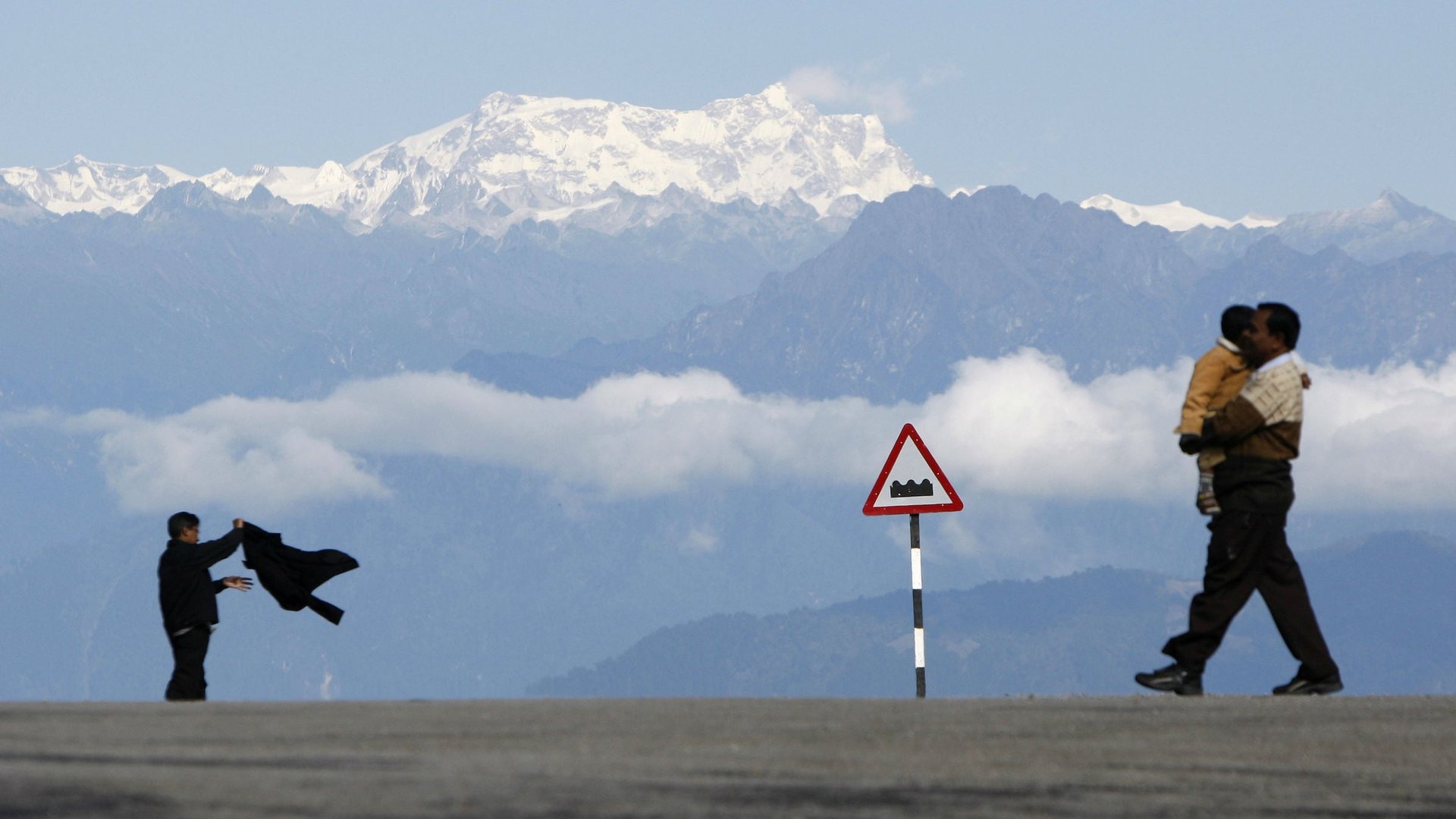The remote capital of the Kingdom of Bhutan wants to transform itself into an electric car “hot spot”
A tiny Himalayan kingdom that’s long been fiercely protective of its ancient Buddhist traditions wants to transform its capital into an electric car city. Tshering Tobgay, prime minister of Bhutan, said this week that the city of Thimpu would start replacing all official government vehicles (paywall) with the Nissan Leaf. Taxis and private cars will eventually be replaced with electric cars made within the country.


A tiny Himalayan kingdom that’s long been fiercely protective of its ancient Buddhist traditions wants to transform its capital into an electric car city. Tshering Tobgay, prime minister of Bhutan, said this week that the city of Thimpu would start replacing all official government vehicles (paywall) with the Nissan Leaf. Taxis and private cars will eventually be replaced with electric cars made within the country.
Bhutan, known as something of a real-life Shangri-La, has been hailed as a model of holistic development for years. In the 1970s, worried over the focus developing countries place on economic growth, Bhutan made “gross national happiness” (GNH), which takes into account measures of the environment and people’s well-being, its priority. Bhutan has pledged to stay carbon-neutral country and requires that 60% of the country always remain forested. It enforces a pedestrian day once a month, barring private cars from the roads. (At the same time, the country also faces a slightly slowing economy—4.6% last year compared to the country’s average growth of 9% between 2002 and 2008—and what some say is an unhealthy dependence on its trade partner, India.)
Bhutan partly relies on its insularity to achieve all this. Tourism is restricted—all visitors must be part of tour groups—for fear of the destruction of traditional values. Foreign imports like private cars are also banned, in part because of a shortage of Indian rupees that’s led to tightened import controls to save the local currency. (The ban has been good for second-hand car dealers selling vehicles already in the country from India and China.) That’s what’s caused the economy to slow, according to politicians who say the GNH philosophy distracts from the country’s real problems.
The electric vehicle campaign could change some of that. Thunder Motors, a local firm making electric car prototypes, is building an assembling plant that has been importing batteries, motors and other parts from abroad. The government is expected to introduce legislation later this year to exempt electric cars from import taxes. Whether an economy that depends on forestry, agriculture, and the sale of hydroelectric power to its neighbor India can create a car manufacturing base is uncertain, but authorities appear ambitious. Tobgay says the government will build a research and development center for electric car technology in Thimpu.
Thimpu may be a good place for Bhutan’s electric aspirations. Overall car ownership in the country has been steadily increasing since the 1990s, as incomes have risen. (Gross national income per capita has increased 467 times (pdf, p. 2) between 1985 and 2012.) Today, a little over a third of urban households (pdf, p. 58) have a family car.
Moreover, electricity is cheap, given that there’s plenty of hydropower in the country, which is produced in the rivers that run through Bhutan’s mountainous landscape. And in Thimpu, most of the 120,000 residents take only short trips. “This government is going to attempt to make Thimpu an electric vehicle hotspot,” Tobgay said (paywall). “You put 2,000 vehicles in Thimpu and suddenly Thimpu is an electric city.”